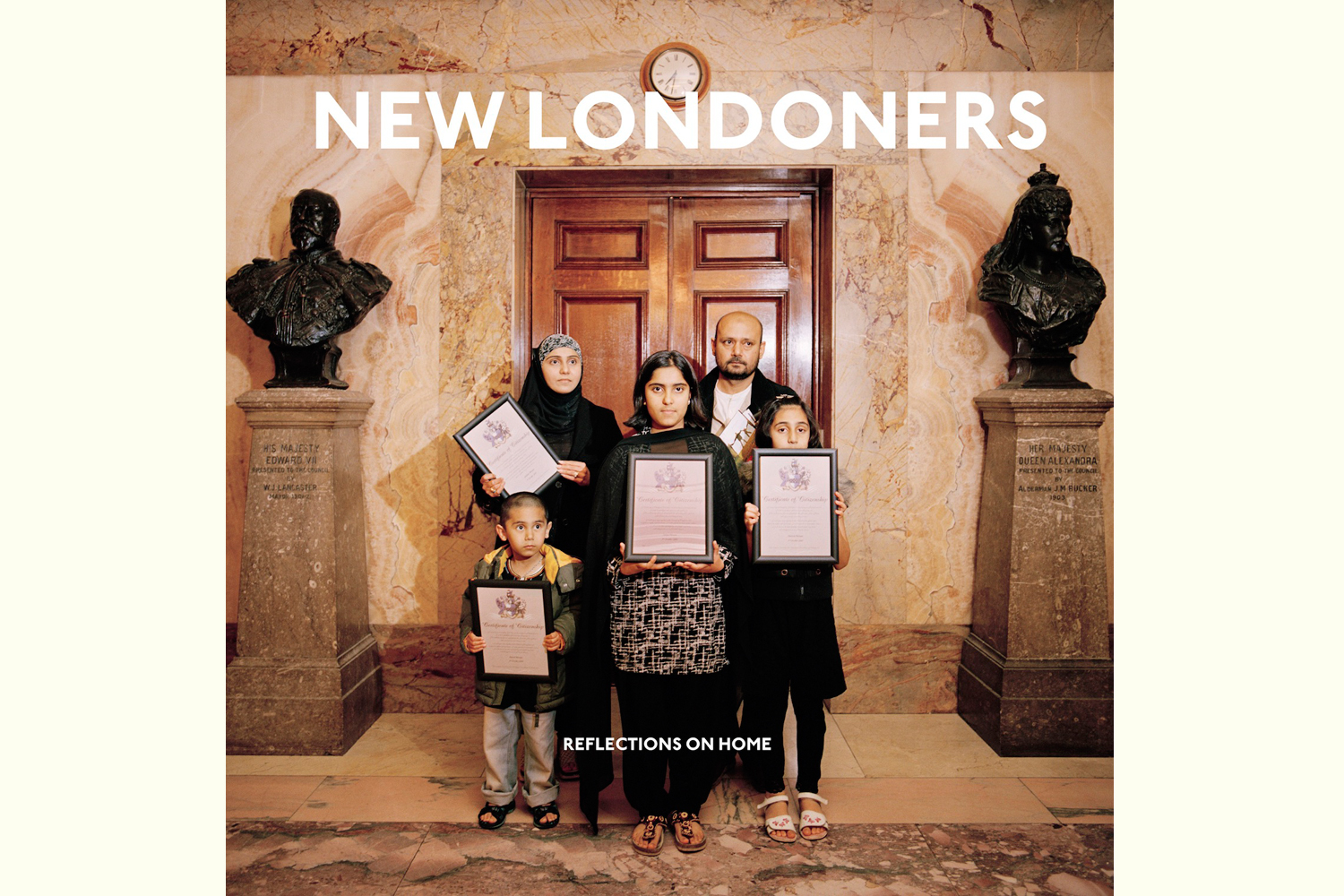
New Londoners book cover, published by Trolley Books
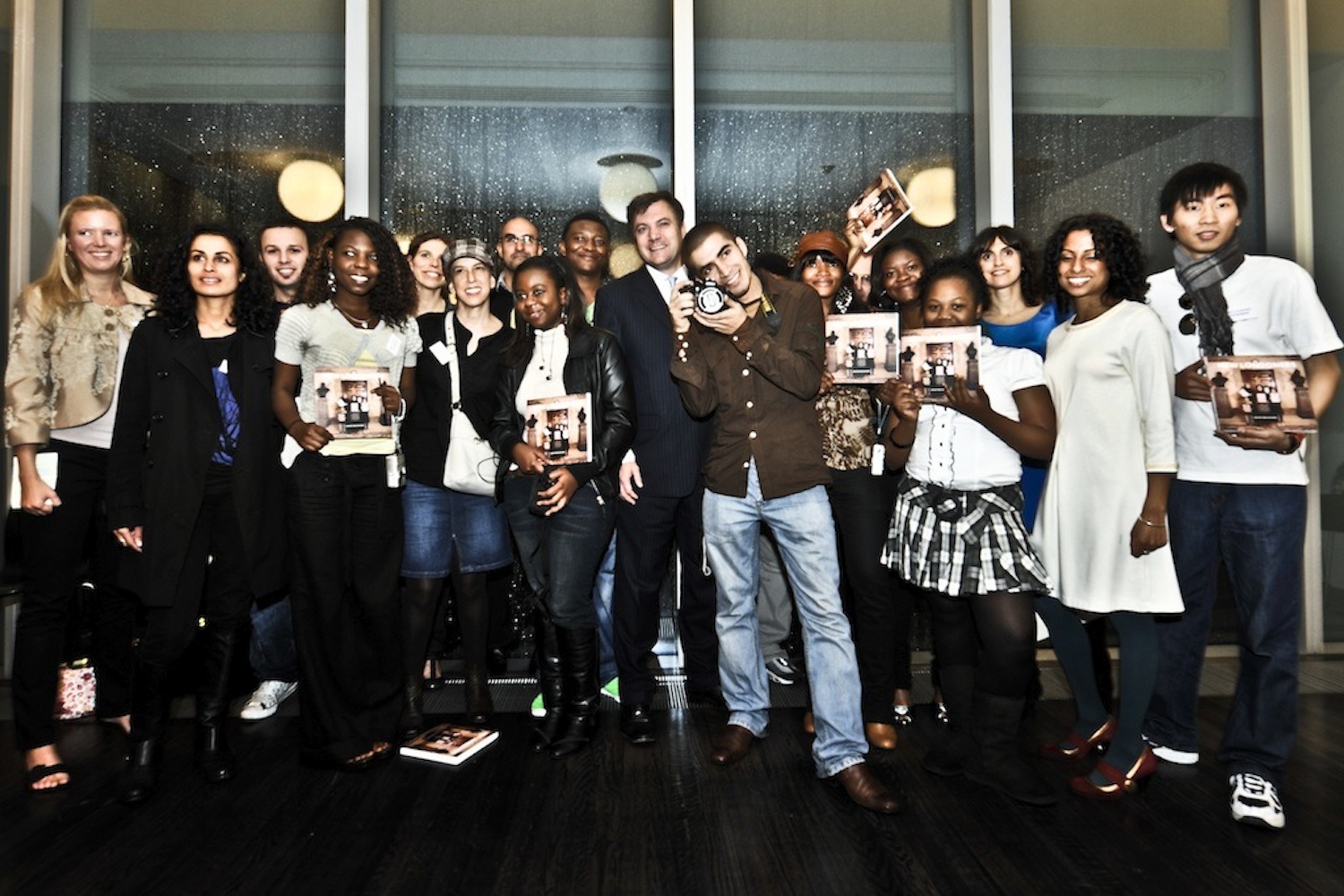
The photographers with Ed Balls, Secretary of the State for Children, Homes and Families at the New Londoners book launch at Tate Modern, October 2008
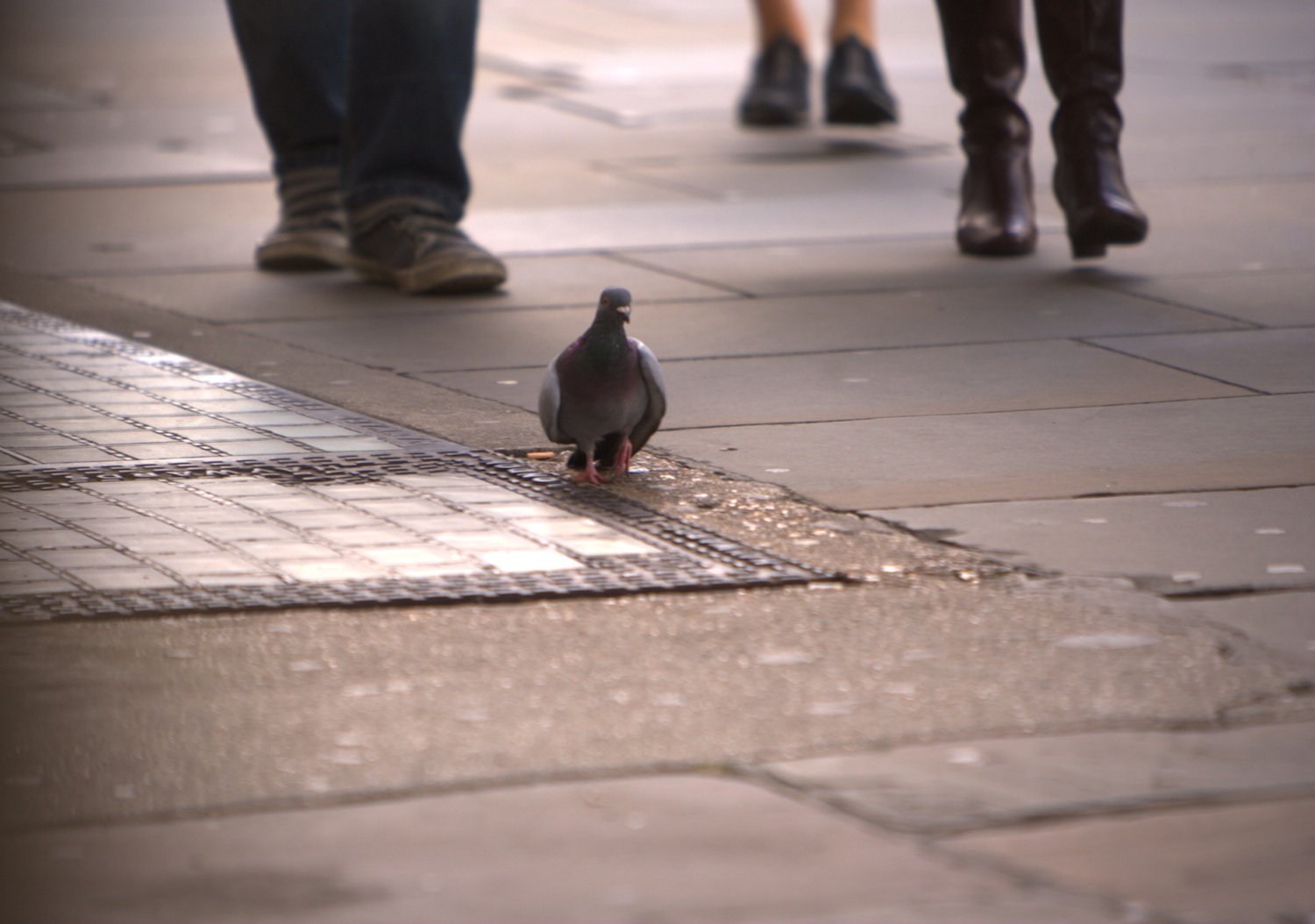
I came to the UK in 2001. My first impressions of London were strange. I was in East Ham and it was not like the London I had seen on the television. I lived with a foster family. They were Indian and I had never seen people eating with their hands before. The experience of seeing different customs and lifestyles was new. After a while, I got to know about these cultures and came to respect them. Once you get over the strangeness of difference you understand how many things are the same.
Bajram Spahia, excerpt from Waiting for Amy, New Londoners (PhotoVoice / Trolley 2008)
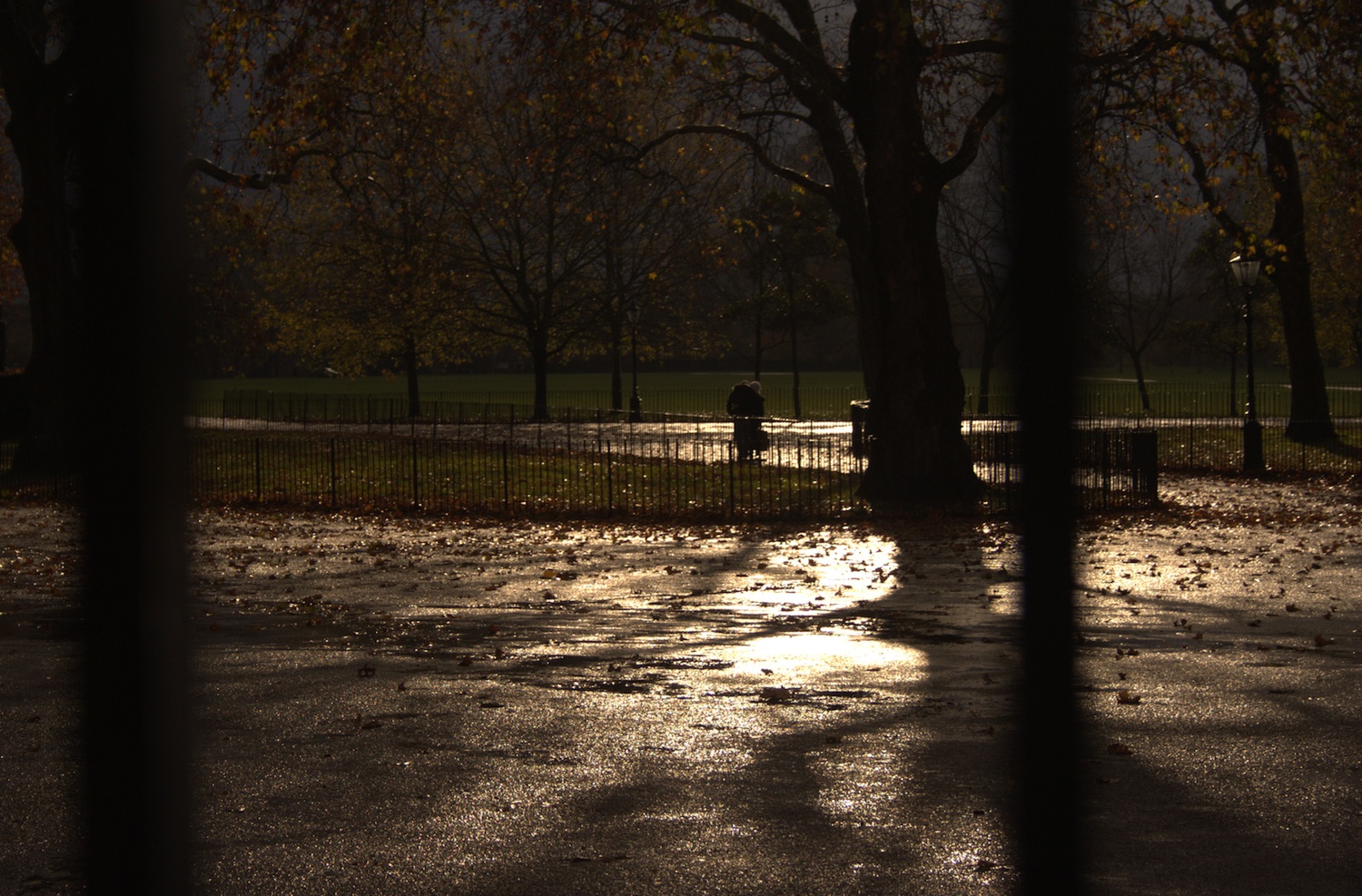
Waiting for Heather
Bajram Spahia, New Londoners (PhotoVoice / Trolley 2008)

Maybe I’ll be happy here. I have not chosen to be here, and I have no choice if they want to send me back. I should be happy but I am not. I am not able to start my life yet. Not until I get my visa. I am here but I am always thinking about my city, Kirkuk. I want to live in my city but I can’t. My thoughts are like this all the time, I want to be here, but I don’t know if they will let me stay. I want to be there, but can’t be there either. So what can I do? … The photos I have taken were but together to show how my thoughts are. Always in twos, for every happy thought, an unhappy thought. For every time I think of being here, I think of being there. Wanting to be here but missing there. Not being a part of here but also beginning to be.
Chalak Abdulrahman, excerpt from Maybe … , New Londoners (PhotoVoice / Trolley 2008)
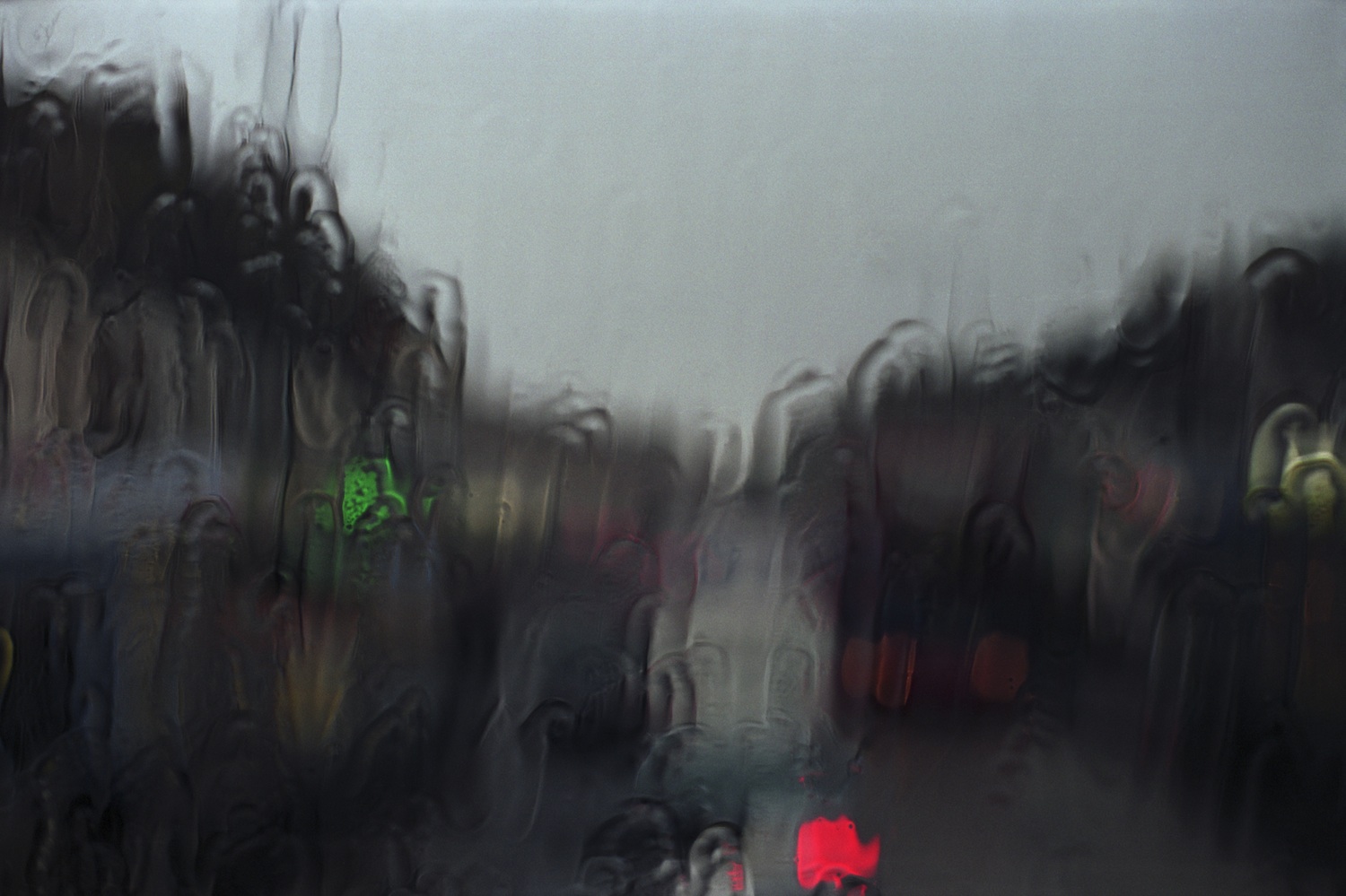
Maybe I’ll be happy here. I have not chosen to be here, and I have no choice if they want to send me back. I should be happy but I am not. I am not able to start my life yet. Not until I get my visa. I am here but I am always thinking about my city, Kirkuk. I want to live in my city but I can’t. My thoughts are like this all the time, I want to be here, but I don’t know if they will let me stay. I want to be there, but can’t be there either. So what can I do? … The photos I have taken were but together to show how my thoughts are. Always in twos, for every happy thought, an unhappy thought. For every time I think of being here, I think of being there. Wanting to be here but missing there. Not being a part of here but also beginning to be.
Chalak Abdulrahman, excerpt from Maybe … , New Londoners (PhotoVoice / Trolley 2008)
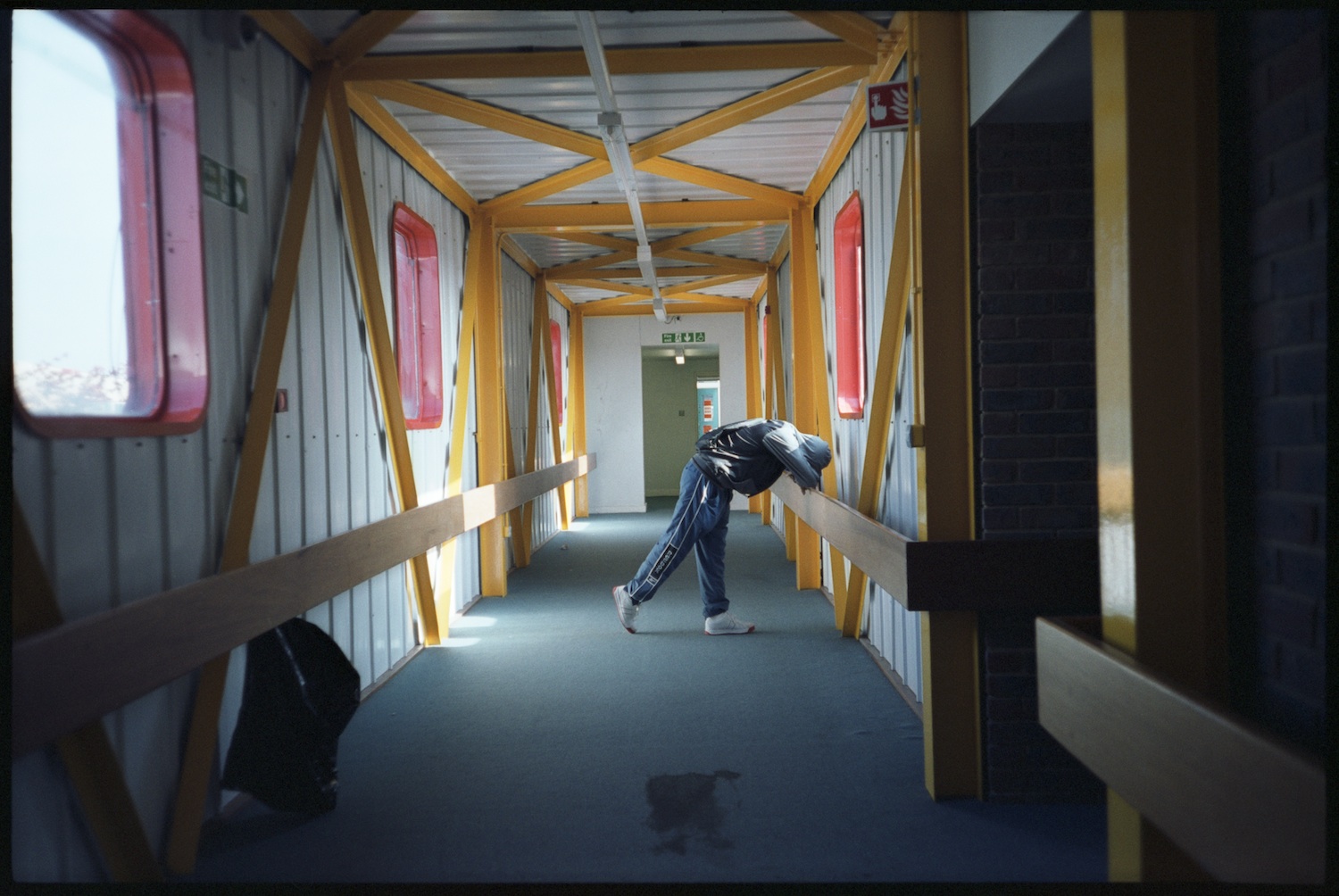
Maybe I’ll be happy here. I have not chosen to be here, and I have no choice if they want to send me back. I should be happy but I am not. I am not able to start my life yet. Not until I get my visa. I am here but I am always thinking about my city, Kirkuk. I want to live in my city but I can’t. My thoughts are like this all the time, I want to be here, but I don’t know if they will let me stay. I want to be there, but can’t be there either. So what can I do? … The photos I have taken were but together to show how my thoughts are. Always in twos, for every happy thought, an unhappy thought. For every time I think of being here, I think of being there. Wanting to be here but missing there. Not being a part of here but also beginning to be.
Chalak Abdulrahman, excerpt from Maybe … , New Londoners (PhotoVoice / Trolley 2008)
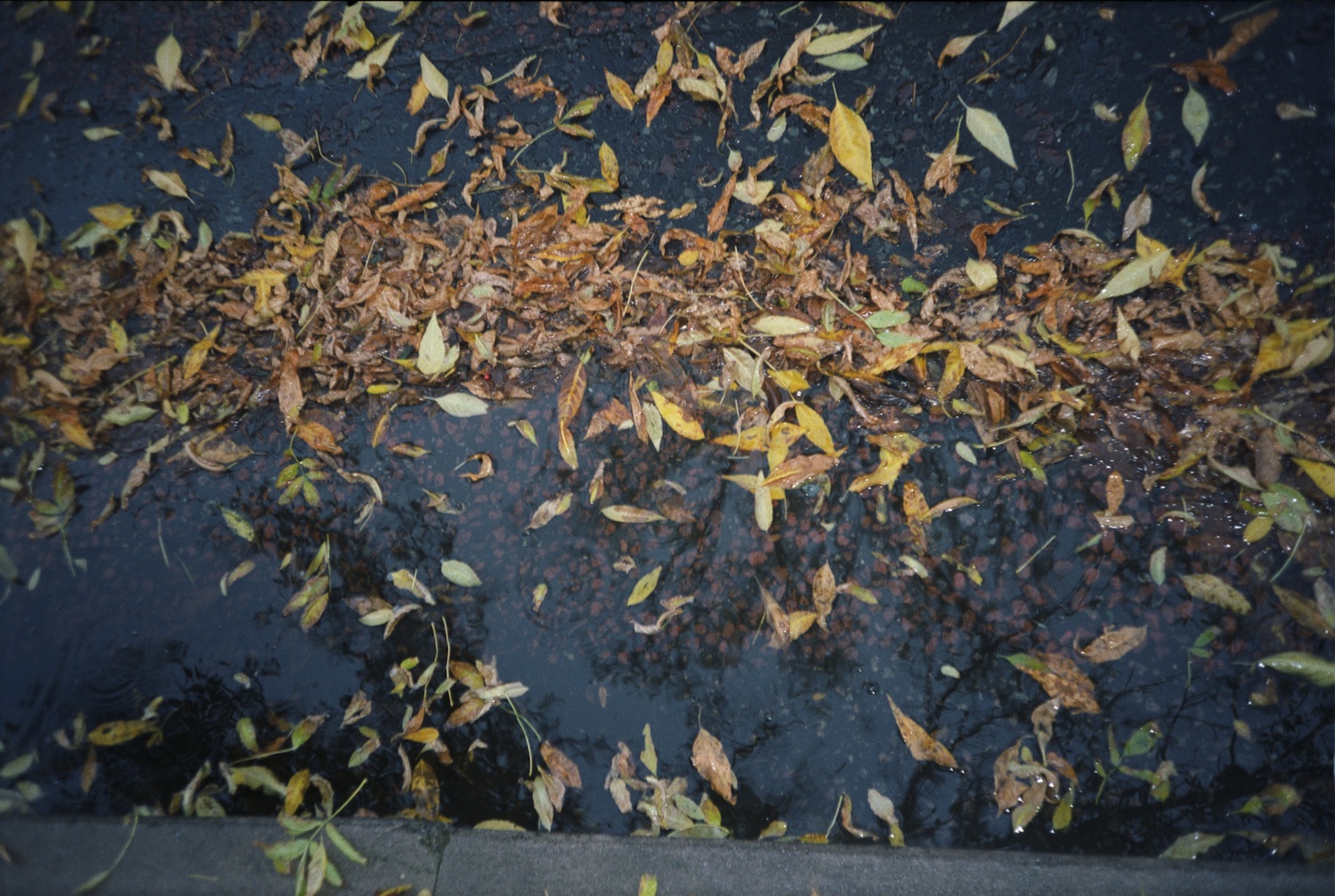
Maybe I’ll be happy here. I have not chosen to be here, and I have no choice if they want to send me back. I should be happy but I am not. I am not able to start my life yet. Not until I get my visa. I am here but I am always thinking about my city, Kirkuk. I want to live in my city but I can’t. My thoughts are like this all the time, I want to be here, but I don’t know if they will let me stay. I want to be there, but can’t be there either. So what can I do? … The photos I have taken were but together to show how my thoughts are. Always in twos, for every happy thought, an unhappy thought. For every time I think of being here, I think of being there. Wanting to be here but missing there. Not being a part of here but also beginning to be.
Chalak Abdulrahman, excerpt from Maybe … , New Londoners (PhotoVoice / Trolley 2008)
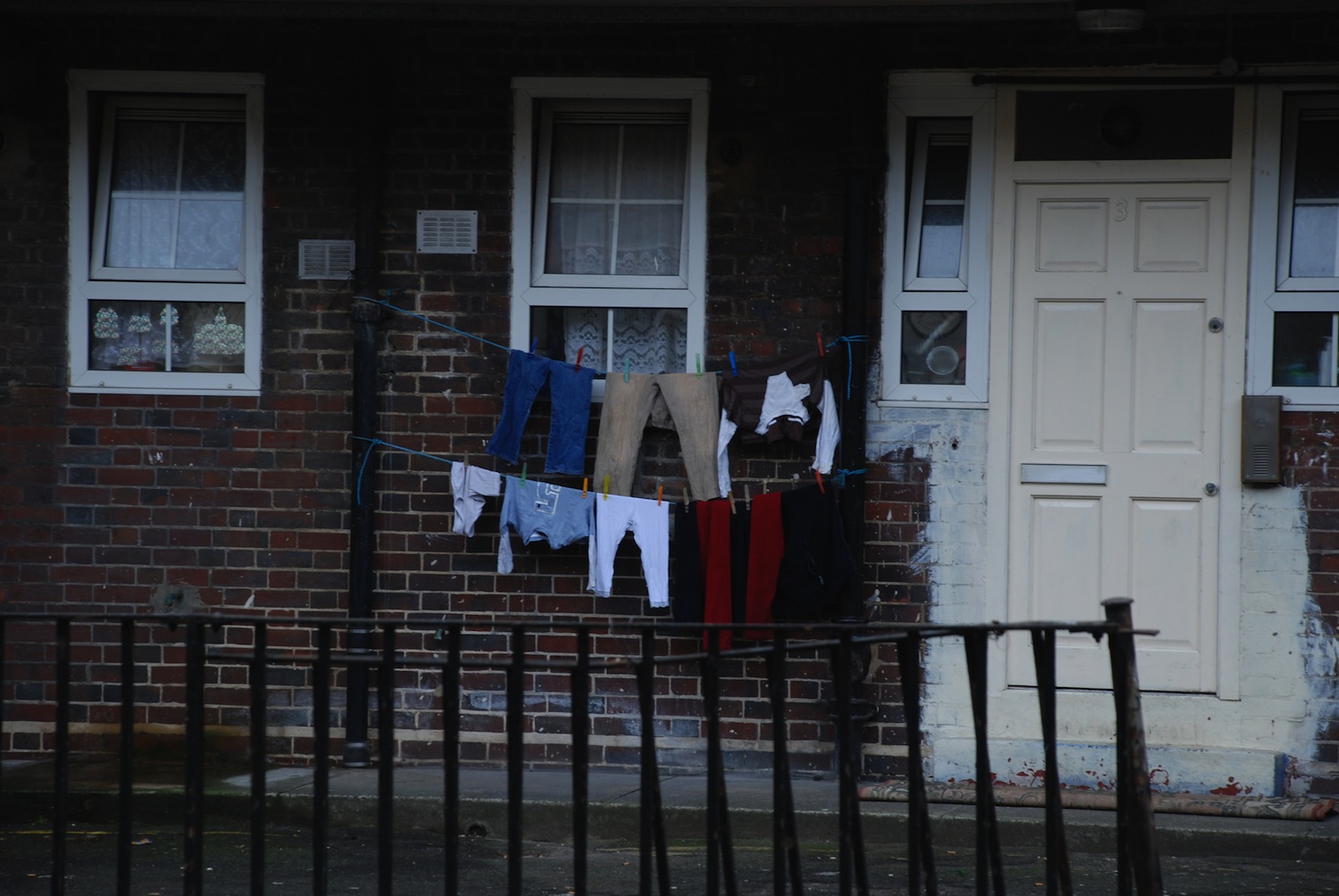
My friends in Iraq would be shocked if I told them I took this photo in London. They would not believe that some Londoners live in such poor housing. It is just like Iraq - the washing line, the drain pipes, the badly painted door, the only thing which looked out of place were the windows, they looked new.
Al-Mousaoy, excerpt from An Unexpected London … , New Londoners (PhotoVoice / Trolley 2008)
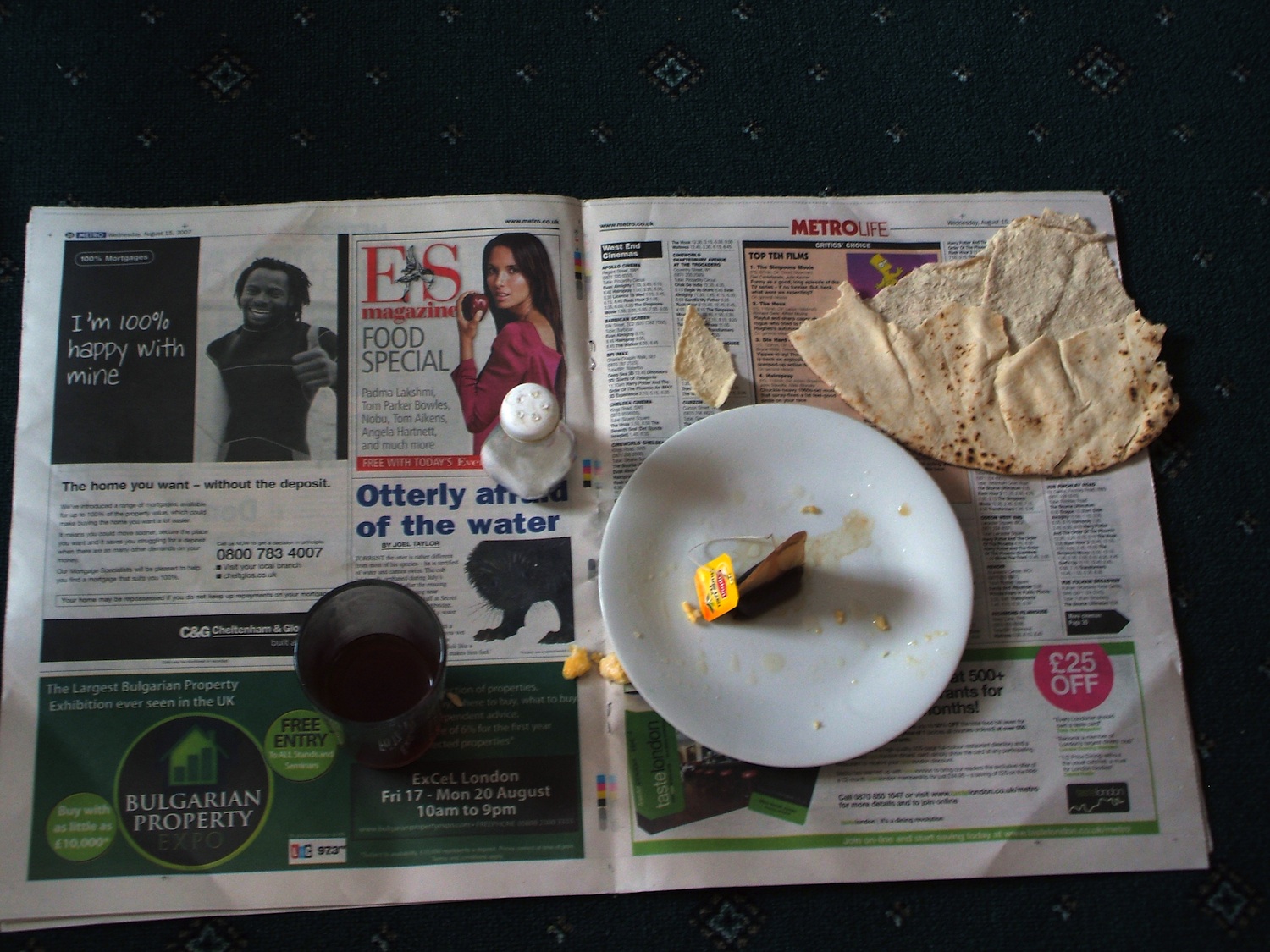
This is my breakfast. I made two eggs, some bread, tea. Then I thought I could take a picture of it. For people here it is just my breakfast. But if I showed it to someone in Iraq they wouldn't believe it. When we were in Iraq we imagined England was just like what we saw on TV, in films. Breakfast tables had bread and orange juice. But my breakfast is the same as in Iraq. The only difference is the tea bag. We don't make tea with tea bags we let it brew.
Al-Mousaoy, excerpt from An Unexpected London … , New Londoners (PhotoVoice / Trolley 2008)
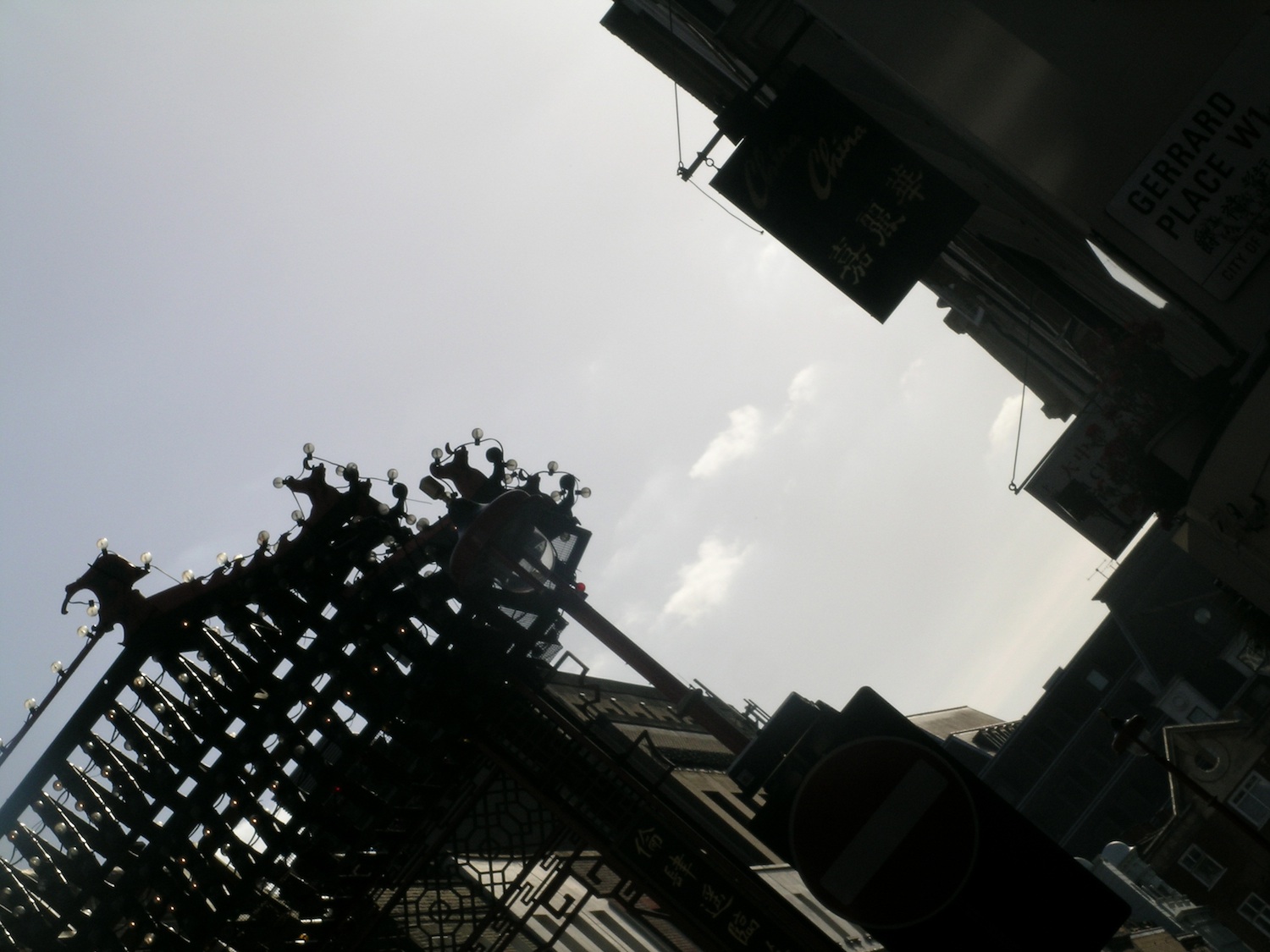
I always thought I was entering a colourful world of freedom since I left China. But then it turns out to be just black and white. Memory and hope are of the same color for me.
Chen Feng Chen, excerpt from Peeking the Full Moon, New Londoners (PhotoVoice / Trolley 2008)
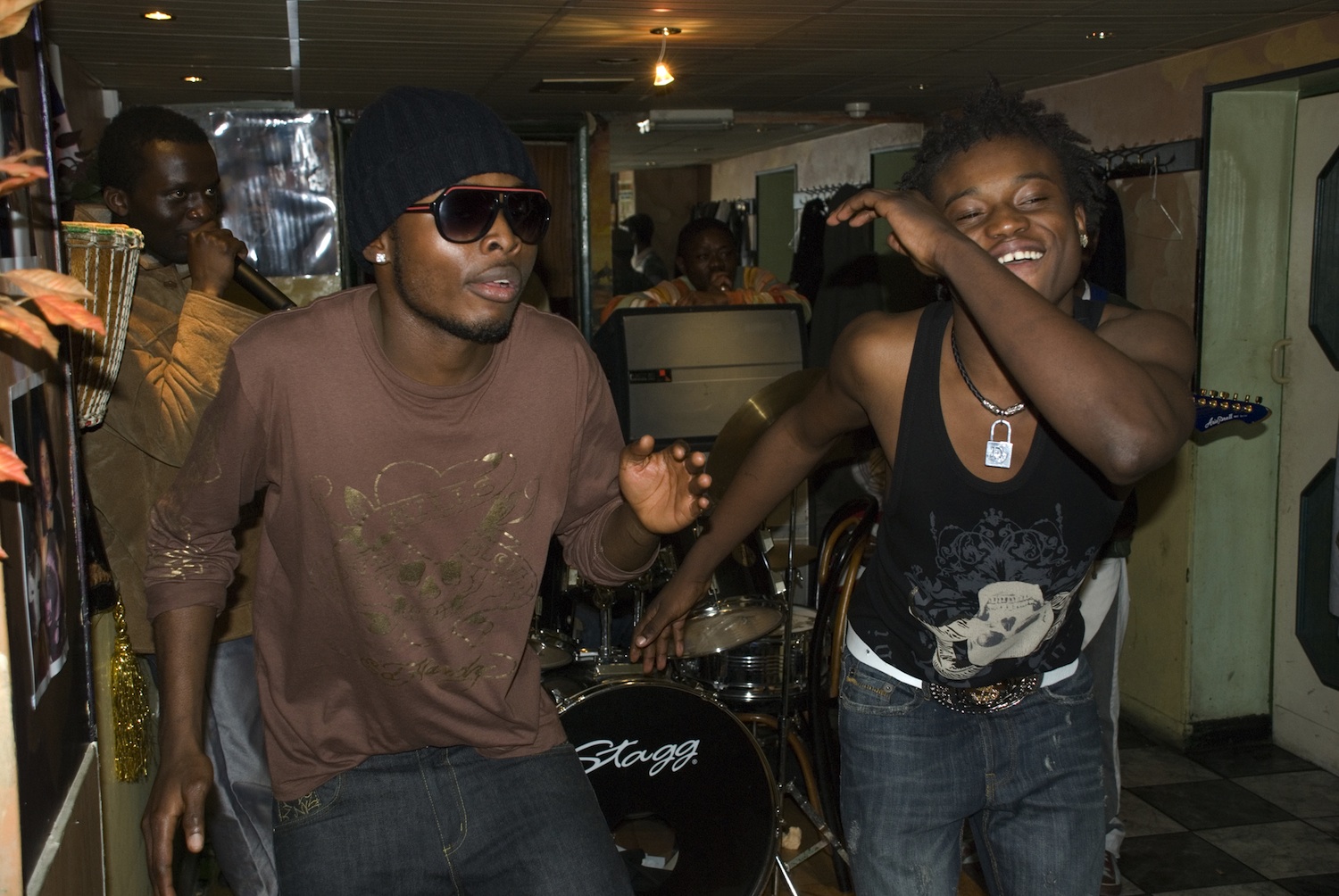
The man on the left of the picture is my friend. Him and the band are very talented musicians… I go to hear them play once a week in Brixton. They play modern Congolese music called Soukous – of which ndombolo is a very popular style. … The rythms are hard and fast. You can loose yourself in the music. I understand everything they sing about – they sing about life and they sing about love. Everyone there dances, we all dance in our own way…
Ivano Kankonde, excerpt from The Congolese Youth Band, New Londoners (PhotoVoice / Trolley 2008)

At first I didn't have any idea of how London would be. I didn't actually know that I was going to be coming to this country.... I think London is a great place to be, you don't have to worry about your life. There is law that people have to follow, there is democracy... London for me is like being blessed by God because so many opportunities that I have here, others do not.... But life in London is also really hard. Here I have to be responsible for everything; my money, going to the doctor... you have to fly for yourself at such a young age when you haven't been trained in so many things. Sometimes you can be really lonely, frightened and worried.
I really enjoyed taking these photos. Through photography I have looked at things more deeply, like looking into my life and seeing how to move on... Photography has been a therapy for me. I learnt how to break free of myself.
The entrance to where my social worker works is like an emotional doorway to getting help with your problems, where problems get solved. That is the reason why people walk through that door.
Loria Siamia, excerpt from I Am Not Alone … , New Londoners (PhotoVoice / Trolley 2008)
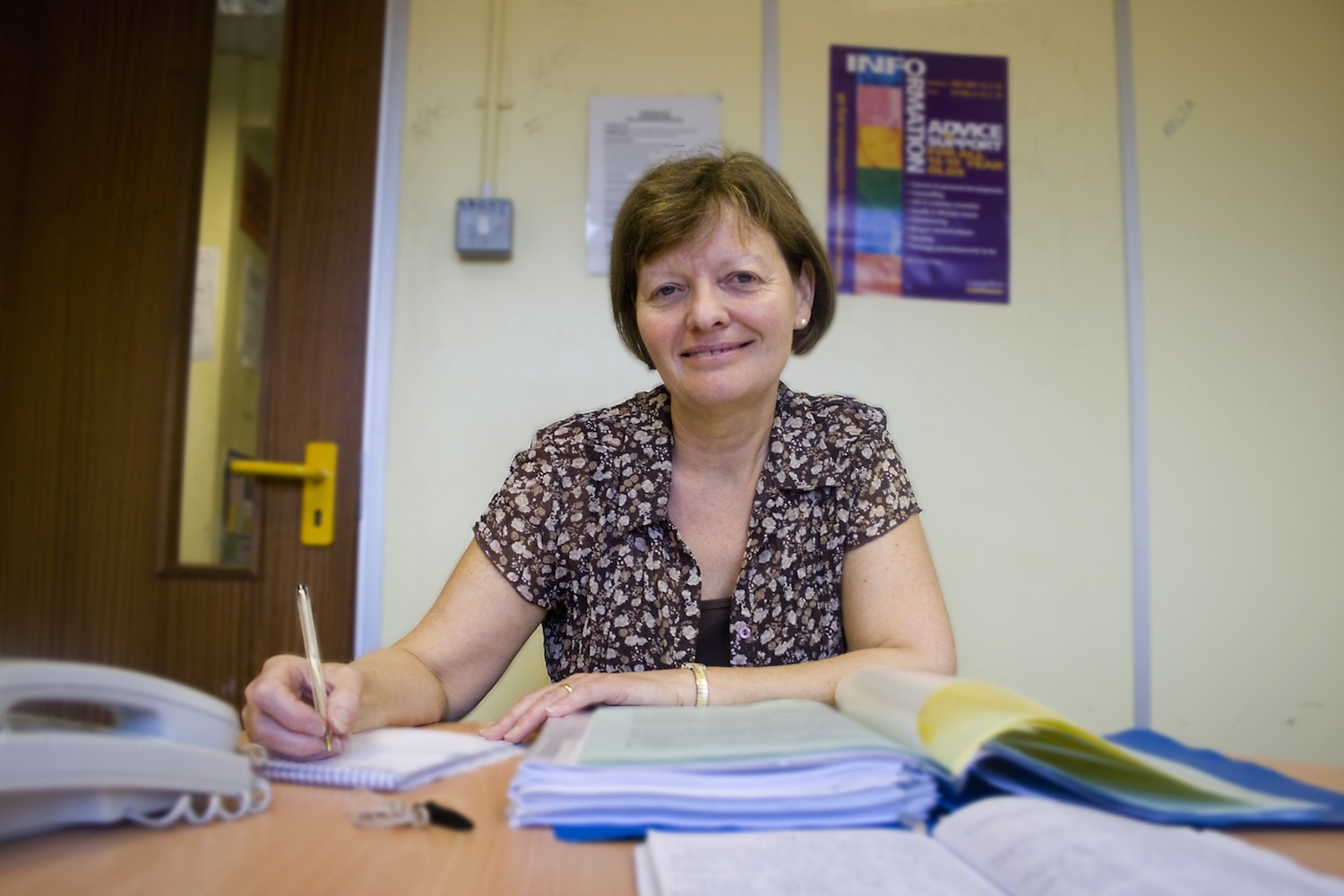
My social worker is one of the most wonderful people I have ever met. She makes me believe in myself, she gave me hope when I didn’t have any. I have become closer to my social worker since taking her portrait.
Loria Siamia, excerpt from I Am Not Alone, New Londoners (PhotoVoice / Trolley 2008)
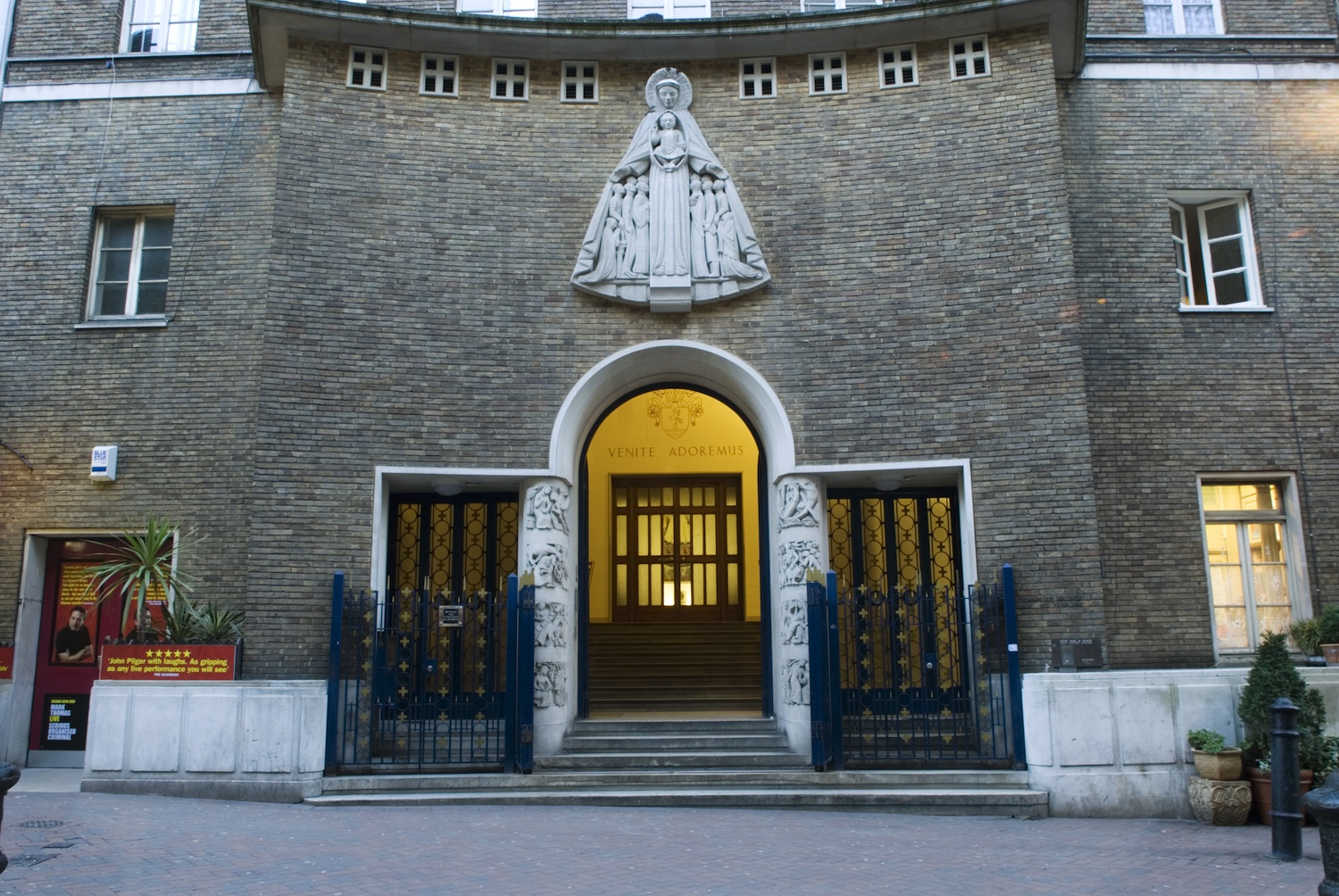
The church is so special to me. It is a refuge. It is a French/Lingala church.... When I am worried and I ask my God, why. I know he hears me so I feel happy. My family - even though I don't know where they all are - are the most important people in my life. I will always remember them. It is because of them that I am who I am now.
Loria Siamia, excerpt from I Am Not Alone … , New Londoners (PhotoVoice / Trolley 2008)
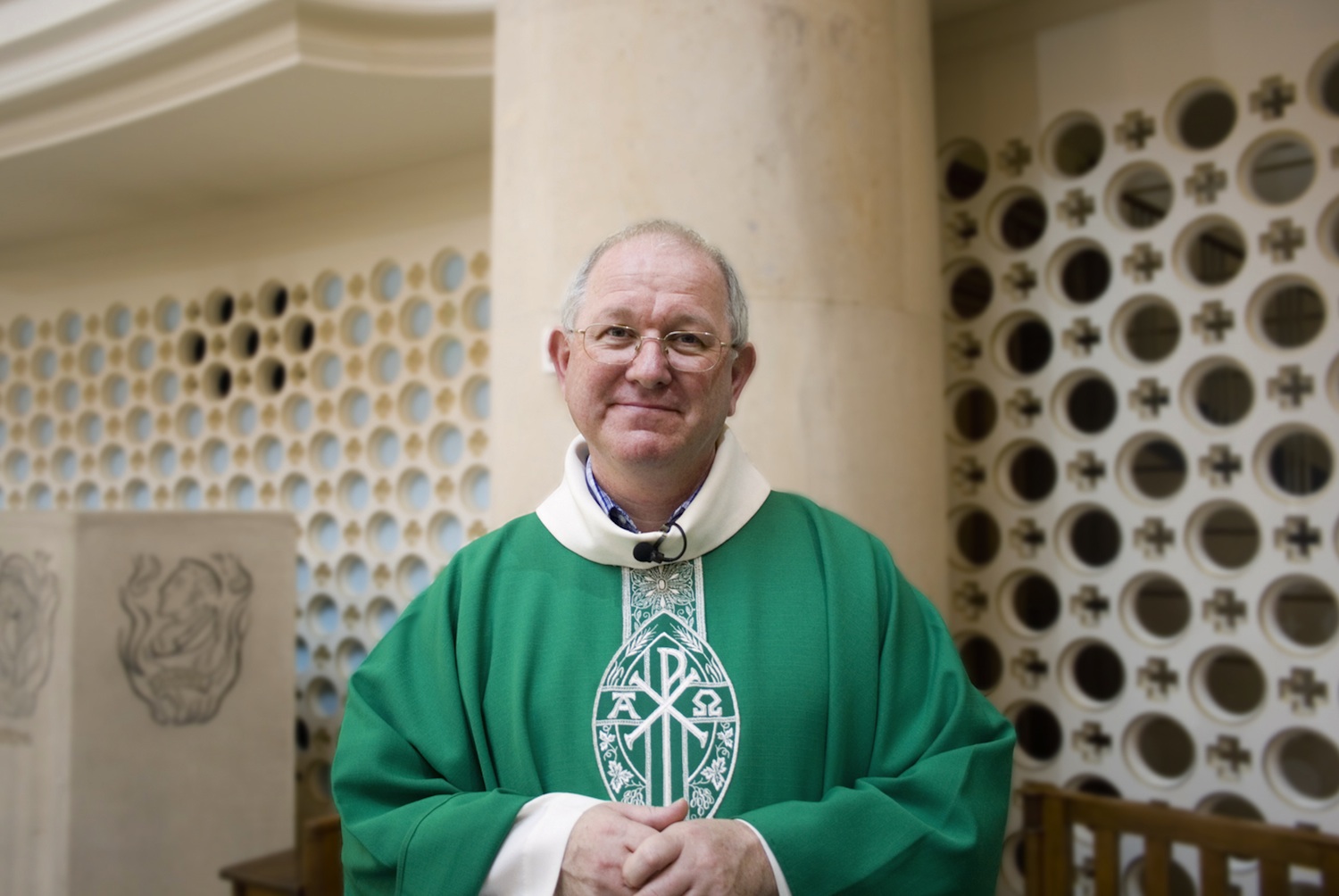
The pictures of my priest and my church are my favourites
Loria Siamia, excerpt from I Am Not Alone … , New Londoners (PhotoVoice / Trolley 2008)
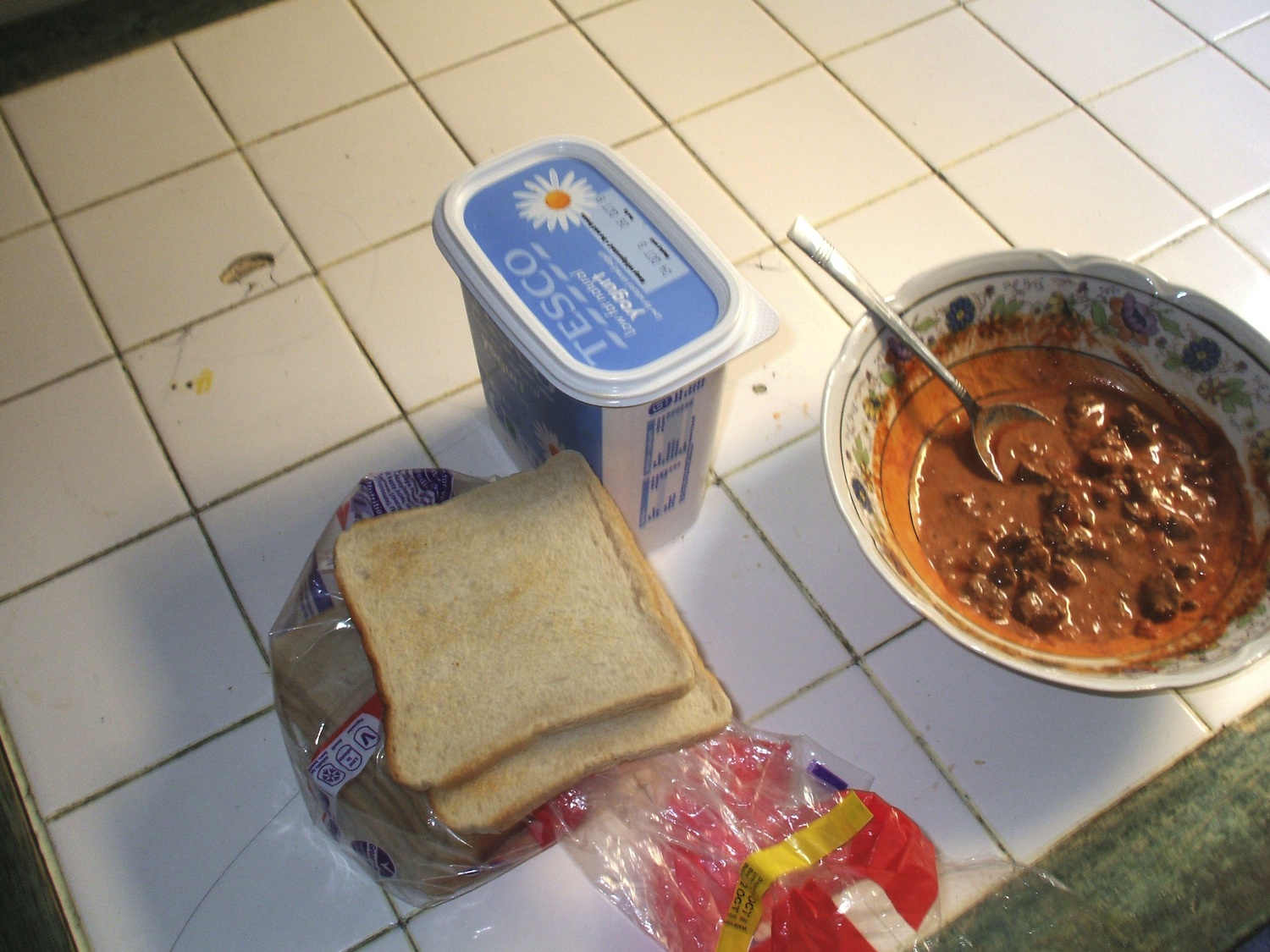
At home we make injera and bread as well, by grinding grain to flour. We make dough and cook it on a flat aluminum sheet with fire underneath. We burn wood usually, though you can make your own charcoal. When I was very young we had sheep and goats to make yoghurt but they all perished in the drought.
Mussie Haile, excerpt from They Seem To Be Ours But They Are Not … , New Londoners (PhotoVoice / Trolley 2008)
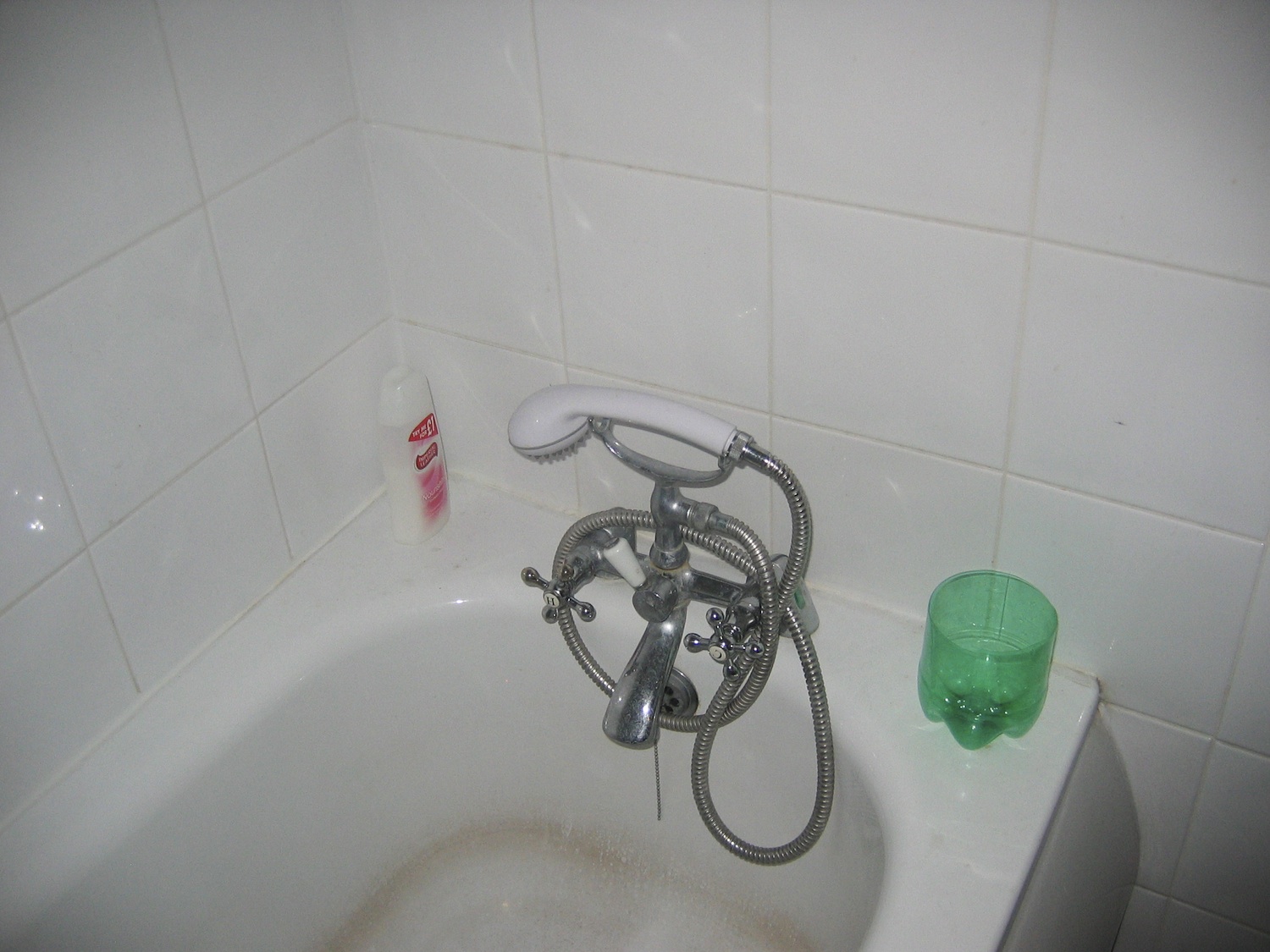
In Eritrea we got water from the lake 3 to 5 kilometers away by donkey. My family had three donkeys. Collecting water was definitely a woman's job. For washing clothes we would take them to the lake, use Omo and dry them on the stones.
Mussie Haile, excerpt from They Seem To Be Ours But They Are Not … , New Londoners (PhotoVoice / Trolley 2008)

I like the pockets in these trousers. I can't find good quality, fashionable clothes in London. They are better in Eritrea.
Mussie Haile, excerpt from They Seem To Be Ours But They Are Not … , New Londoners (PhotoVoice / Trolley 2008)
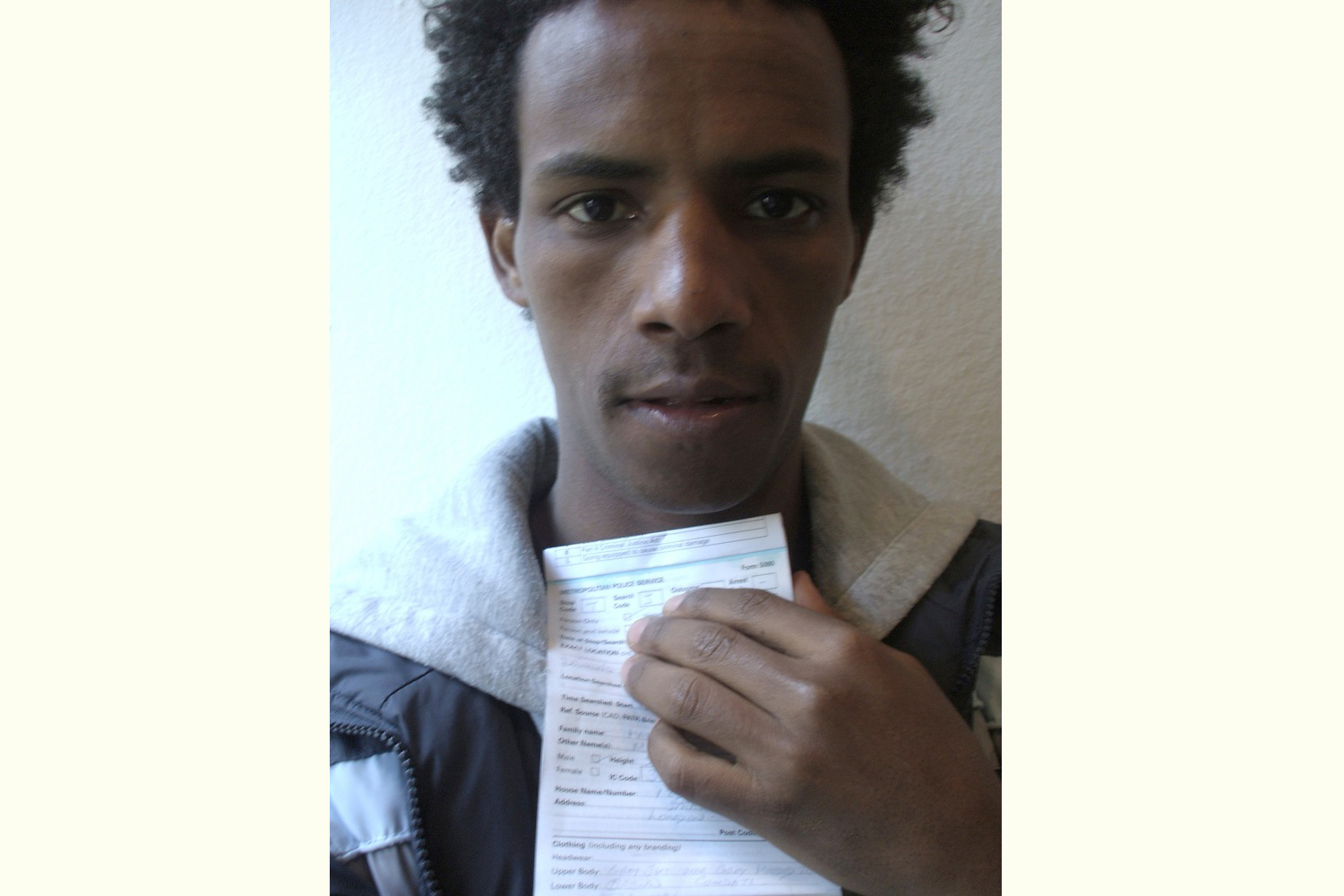
This picture is interesting and makes me wonder. It was the first time I came into contact with the police in England. I was stopped and searched when I was waiting for Crispin outside Downing Street. Afterwards I took this self-portrait holding the piece of paper they gave me.
Mussie Haile, excerpt from They Seem To Be Ours But They Are Not … , New Londoners (PhotoVoice / Trolley 2008)
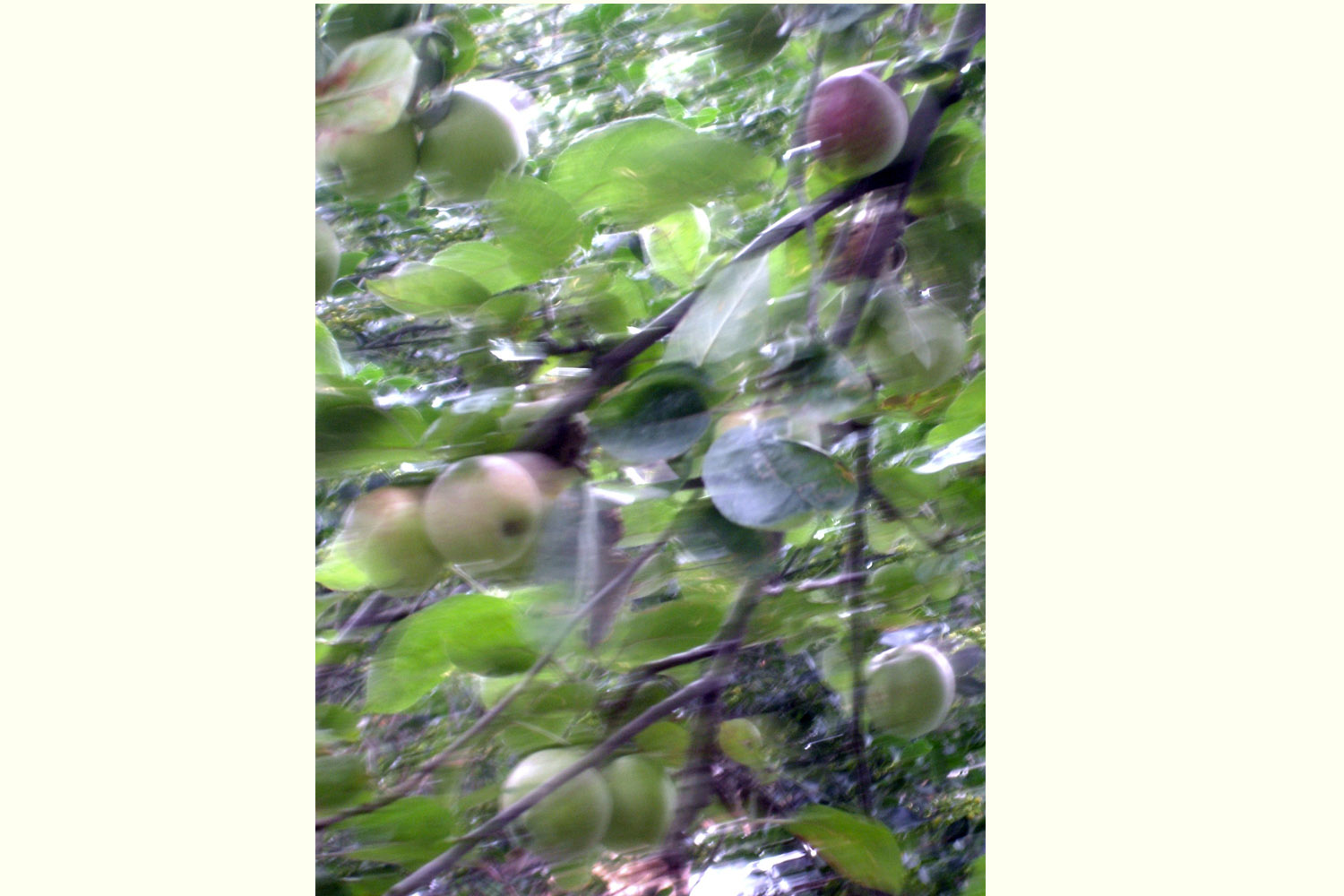
This picture is of an apple tree. It is not our garden but it comes down over our garden. That’s why I wanted to take the picture. When I look at the apples they seem to be ours, but they’re not.
Mussie Haile, excerpt from They Seem To Be Ours But They Are Not … , New Londoners (PhotoVoice / Trolley 2008)

I had my citizenship ceremony last summer and to my surprise it was quite emotional… I have an interest in how the ceremony affects and shapes one’s personal identity, and in how it is reshaping communities in cultures already established. I also wonder how the apparent ‘equality’ being given to the new citizens will affect the obvious cultural, financial and social inequality. Only the future will tell but at the moment it is a privilege to be present while such developments take place.
Tatiana Correia, excerpt from New Citizens, New Londoners (PhotoVoice / Trolley 2008)






















‘I want to be a free person in this country, to be equal. This photography, this book, gives me a voice to show others the way of life of a new Londoner. This is our chance, we are making a piece of history’ Mussie Haile, a New Londoner
‘Each of the photographs in this book is a record of a moment of choice, made by someone who has not always been able to choose the most basic things about how or where to live’ Hari Kunzru, author
New Londoners brought together 15 unaccompanied refugee youth who were mentored by 15 professional photographers to create personal photo stories about their views and experiences of London. The work was published by the award-winning Trolley Books as a collection of photo essays, ‘New Londoners: Reflections on Home’, with contributions from the broadcaster George Alagiah, the author Hari Kunzru and the curator Charlotte Cotton.
The participants, aged between 15 and 21, from Africa, Asia and the Middle East, used a variety of photographic styles and perspectives, from performative documentary to autobiography and portraiture, to tell diverse stories on the common experience of being young refugees, separated from their families, re-building their lives in London. Mentoring photographers included Adam Broomberg and Oliver Chanarin, Jillian Edelstein, Jenny Matthews, Sarah Moon and Othello De’Souza-Hartley.
New Londoners was a partnership project between PhotoVoice and Project Dost that ran I initiated, designed and co-managed. It ran from 2006-2008 and was funded by The Paul Hamlyn Foundation, The City Parochial Foundation, The Jack Petchey Foundation.
Project Press